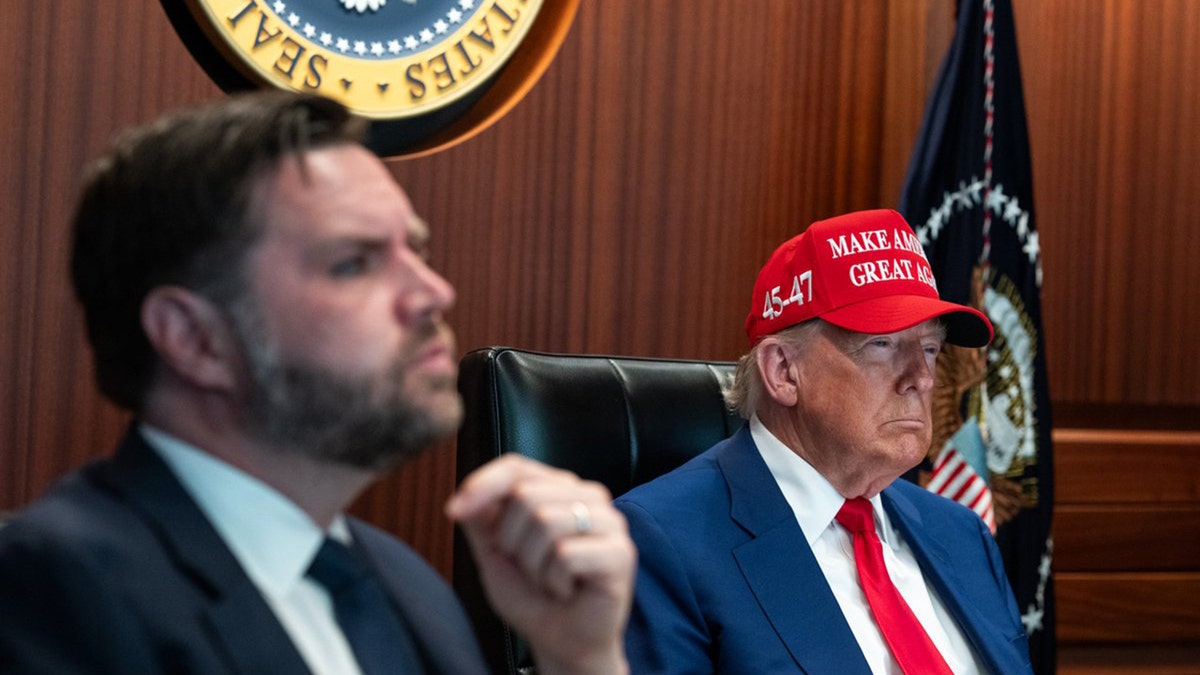Vance touts destruction of Iranian nuclear program as Trump announces Israel-Iran ceasefire

NEWYou can now listen to Fox News articles!
Vice President JD Vance said the United States achieved its objective in destroying Iran’s nuclear program, moments after President Donald Trump announced on his Truth Social platform that Israel and Iran had agreed to a “complete and total ceasefire.”
Vance told “Special Report” Monday that he had left the White House before Trump broke the news of a ceasefire but had been aware of its developments prior to coming on air.
“First of all, the president, without, knock on wood, having a single American casualty, obliterated the Iranian nuclear program. We are now in a place where we weren’t a week ago. A week ago, Iran was very close to having a nuclear weapon. Now Iran is incapable of building a nuclear weapon with the equipment they have because we destroyed it,” he said.
PENTAGON FLEXES US MILITARY’S DECOYS AND STRATEGIC DECEPTION THAT TOOK IRAN AND WORLD BY SURPRISE
The United States struck Iran’s Fordow, Natanz and Isfahan nuclear sites Saturday evening as part of Operation Midnight Hammer, dropping 14 GBU-57 Massive Ordnance Penetrators against two target areas, Fordow and Natanz.
More than two dozen Tomahawk missiles were launched at Isfahan from a U.S. submarine.
“Final battle damage will take some time, but initial battle damage assessments indicate that all three sites sustained extremely severe damage and destruction,” said Chairman of the Joint Chiefs of Staff Gen. Dan Caine.
Caine told reporters that the mission involved more than 125 U.S. aircraft, including B-2 stealth bombers, dozens of air refueling tankers, a guided missile submarine and more.
Vance told Fox News chief political anchor Bret Baier that the United States will work to make sure Iran doesn’t try to rebuild its nuclear capability in the future after the strikes.
“Look, this is a great thing. For Israel, think about this: they’ve accomplished an important military objective. They’ve helped us destroy the Iranian nuclear program. They’ve also destroyed the conventional missile capability of Iran that threatened the country of Israel. For the Iranians, I think this is a new opportunity to actually pursue the path of peace. As I said yesterday, what the Iranians have showed through their support of terror networks, through their now failed effort to build a nuclear weapon, is that they’re just not very good at war,” he said.
“And I think the president really hit the reset button and said, look, let’s actually produce long-term peace for the region. That’s always been his goal. I actually think when we look back, we will say the 12-day war was an important reset moment for the entire region.”

Trump elaborated on the ceasefire agreement between Israel and Iran, writing that it would go into effect in about six hours, when the two nations “have wound down and completed their in progress, final missions!”
STATE DEPARTMENT ISSUES WORLDWIDE CAUTION FOR US TRAVELERS FOLLOWING TRUMP’S IRAN STRIKES
The ceasefire news comes just hours after Iran fired at least 14 missiles at the Al Udeid Air Base in Qatar in retaliation for the U.S. strikes.
The deal is expected to be phased in during the next 24 hours, according to Trump.
“I think what the Iranians have shown very clearly is they don’t want this war to go on for much longer. Their air defenses have been totally destroyed. Their conventional missile program has been largely destroyed. And of course, their nuclear program has been obliterated, as I said before,” Vance explained. “So I think the Iranians entered a place where they don’t want to keep on fighting.”
Read the full article here









